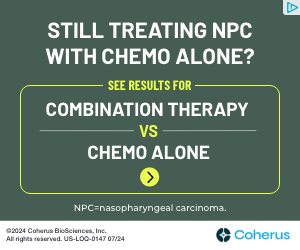The ASCO Post™ is published by Conexiant under a license arrangement with the American Society of Clinical Oncology, Inc. (ASCO®). The ideas and opinions expressed in The ASCO Post™ do not necessarily reflect those of Conexiant or ASCO. The mention of any company, product, service, or therapy should not be construed as an endorsement of any kind. Conexiant and ASCO assume no responsibility for any injury or damage to persons or property arising out of or related to any use of material contained in this publication or to any errors or omissions. |
|
|
_3124795.png)


 Although it’s been widely reported for years that colorectal cancer incidence has been increasing among younger adults under age 50 by between 1% and 2% annually since the mid-1990s, two new studies by Kimmie Ng, MD, MPH, Associate Chief of the Division of Gastrointestinal Oncology and Founding Director of the Colon and Rectal Cancer Center at Dana-Farber Cancer Institute, and Associate Professor of Medicine at Harvard Medical School, and her colleagues, find other alarming trends in early-onset gastrointestinal cancers.
Although it’s been widely reported for years that colorectal cancer incidence has been increasing among younger adults under age 50 by between 1% and 2% annually since the mid-1990s, two new studies by Kimmie Ng, MD, MPH, Associate Chief of the Division of Gastrointestinal Oncology and Founding Director of the Colon and Rectal Cancer Center at Dana-Farber Cancer Institute, and Associate Professor of Medicine at Harvard Medical School, and her colleagues, find other alarming trends in early-onset gastrointestinal cancers.